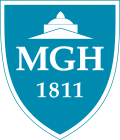

In July of 2012, Massachusetts General Hospital (MGH) rolled out its Acute Care Plan (ACP) program in its Emergency Department. The team at MGH developed ACPs to improve the coordination of care for high frequency emergency department (ED) patients. These plans are notes connected to their ED Information System, which give quick guidance to ED clinicians regarding the patient’s treatment plan, disposition, and who to contact if the patient is in the ED. They were created to address the lack of coordination among outpatient providers and ED providers, particularly for these complex patients. ACPs are special treatment plans integrated within a patient’s record with information from the patient’s primary care provider, case manager, or another clinician to help guide treatment decisions should the patient end up in the ED. ACPs are automatically flagged in the ED Information System (EDIS) when a patient arrives to the ED. With an ACP, patients may avoid unnecessary testing and/or admissions, as there is seamless documentation of the patient’s risk factors and history Since implementation, the number of visits and length of stay for high frequency ED patients selected to have an Acute Care Plan have decreased. Their initial analysis demonstrated some positive results. Comparing 1 year prior to the ACP and 1 year after the ACP, there was a 39% decrease in ED visit volume among this high utilizer population (a net decrease of 565 visits). Approximately 70% of patients who had an ACP experienced a decrease in ED visit volume in the year following the ACP. 60% of patients with an ACP experienced a decrease in ED LOS. The number of hospital admissions decreased by 48% for patients with an ACP (a net decrease of 143 admissions). The overall admit rate among this population decreased by 14%, from 20.8% to 17.9%.
MGH won the Urgent Matters Emergency Innovation of the Year Award in 2014 for this endeavor. They have continued to evaluate and change the program to adapt to their changing institution. The number of Acute Care Plans have continued to increase at Mass General and now span to other Partners HealthCare hospitals in the area like Brigham & Women’s. The initial success of the ACP program allowed them to have system-wide buy-in, which has helped it become successful. Physicians were concerned that with a traditional paper chart, their notes were not being seen due to the high volume of notes in these patients’ files. With an Acute Care Plan, physicians have peace of mind that all of their notes are being seen.
Partners HealthCare hospitals have universally seen a decrease in inpatient admissions and ED visits for these ACP patients. They have begun partnering with outside partners (rehab clinic, mental health facilities, etc.) to continue to manage and track each individual patient. In addition, they meet with these partners regularly to review their data and assign care coordinators to the patients. All of these measures have helped shift the focus from the Emergency Department to the Primary Care physicians.
Prior to the ACP program, MGH found that 4% of their patients in the ED, were visiting 4 or more times a year, taking up 21% of the bed hours for the year. This program has helped to drastically reduce that number and help patients receive more efficient, cost-effective care. Partners currently have 345 ACP’s and it has become a part of their everyday process in patient care.
Related Articles

Jake Keller is the International Program Coordinator for the Ronald Reagan Institute of Emergency Medicine and an MHA student at the GWU Milken Institute School of Public Health